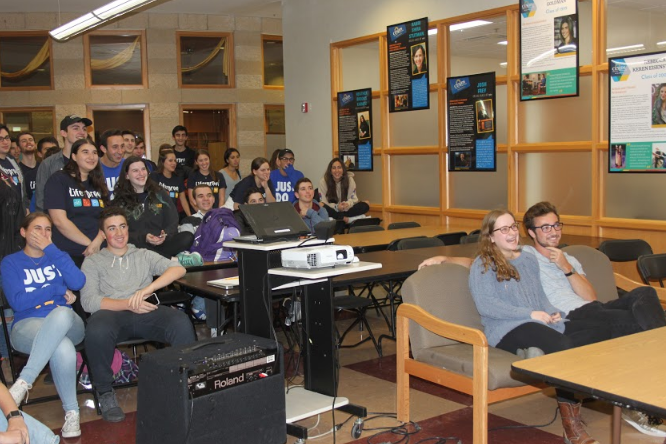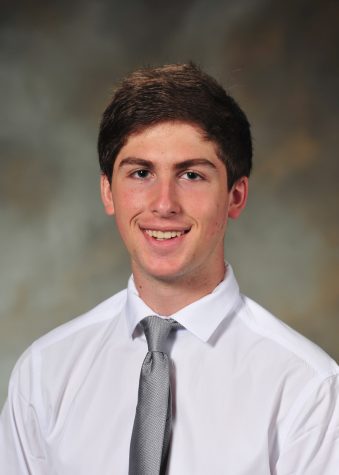Prominent tradition
Promposal season brings excitement, reflection
January 19, 2017
A crowd gathers as senior Yoni Weiner-Tobin begins his response to fellow senior Nadav Kalender in a rap battle. After a few lines, however, it becomes apparent that instead of responding directly to Kalender, Weiner-Tobin is taking the opportunity to ask senior Zoe Salzberg to Prom.
Weiner-Tobin’s promposal continued a strong CESJDS tradition of students asking their dates to Prom by mock proposing to them.
While many promposals take place in school, Weiner-Tobin chose to do his on the senior shabbaton at Capital Camps and Retreat Center (CCRC). Salzberg has attended CCRC for nine years, so Weiner-Tobin thought it would be meaningful to prompose to her there.
Weiner-Tobin planned his promposal several weeks in advance, and was worried about meeting the standards set by previous promposals. He was thankful for the “communal effort” of his friends leading up to the event which helped to alleviate his stress.
“All those people were prepared to help me and were excited for it and excited for me, so it just gave me a really strong feeling of confidence because I knew all these people would support me no matter how it went,” Weiner-Tobin said.
Although Weiner-Tobin did not prompose in school, he needed his plans approved by Dean of Students Roz Landy and Director of Jewish Life Stephanie Hoffman. Promposals that occur at school must be deemed appropriate by Landy and given a specific time slot.
These rules exist so that classes are not interrupted by promposals, which happened frequently in the past. Landy said this was because “teachers are kind people who always want to say yes to their students.”
Math teacher Reuben Silberman, who has been a part of several promposals, has not witnessed this disruption in his class many times since he began teaching at JDS in 2003. Though Silberman thinks that promposals are a “nice tradition” when executed properly, he thinks a difficulty is that many students feel pressured into promposing.
According to Silberman, this stress can lead to rushed planning, which in turn can cause a promposal to not be as meaningful as it would have been if it was planned earlier. He believes that reducing the pressure on students would decrease their anxiety, as well as improve the quality of their promposals.
“There are some [promposals] that really bring the grade together and involve a lot of people and I think give a really warm feeling and give excitement to this time of year which I like,” Silberman said. “But the other side to it is that some students get left out or some students feel pressured to do it when they don’t feel comfortable doing it.”
Senior Maya Arber also thinks that it is unfortunate that not all students get to experience a promposal, but that the scenario is inevitable. Arber has previously experienced this type of exclusion in other circumstances, which is why she thinks that “going to Prom is [a] bigger deal than getting promposed to.”
Arber helped several of her friends with their promposals, many of which involved reflecting on long-standing friendships between members of her grade. Her own promposal from senior Nathan Rodney epitomized to her how different she and her friends are from when they first met.
“It’s not even that I’ve been waiting for my promposal my whole life, but it was more of the fact that I was watching my first core group of friends in a grown-up state,” Arber said. “I was watching older kids do it when I was younger and I was now doing it — it was a wake-up call that I’m growing up.”








